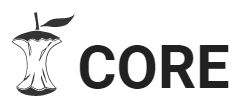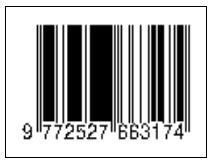Analisis Pengaruh Self-efficacy, Kapabilitas, dan Perilaku Kerja Inovatif terhadap Kinerja
(1) Universitas Kristen Satya Wacana Salatiga
(2) Universitas Kristen Satya Wacana Salatiga
(*) Corresponding Author
Abstract
Keywords
Full Text:
PDFReferences
Agarwal, R. & Prasad, J. (1997). A Conceptual and Operational Definition of Personal Innovativeness in the Domain of Information Technology. Information Systems Research 9 (2): 204–215.
Akdon, R. (2007). Rumus dan Data dalam Aplikasi Statistika. Bandung: Alfabeta.
Anonim. Peraturan Pemerintah Nomor 74 Tahun 2008 tentang Guru.
Avalone, F., Pepe, S. J., Luisa, M. & Vecchione, M. (2010). Work self-efficacy scale and search for work self-efficacy scale: A Validation Study in Spanish and Italian Cultural Contexts.
Avey, J. B., Luthans, F., & Jensen, S. M. (2009). Psychological Capital: A Positive Resource for Combating Employee Stress and Turnover. Human Resource Management 48 (5), 677-693.
Bandura, A. (1997). Self-Efficacy: The Exercise of Control. New York: W. H. Freeman and Company.
Bawono, A. (2006). Multivariate Analysis dengan SPSS. Salatiga: STAIN Salatiga Press.
Byars (1984). Manajemen Sumber Daya Manusia, Yogyakarta: Andi Offset.
Calantone, R. J., Cavusgil, S. T., & Yushan, Z. (2002). Learning orientation, firm innovation capability, and firm performance. Industrial Marketing Management 31 (6), 515-524.
Cherian & Jacob. (2013). Impact of Self-Efficacy on Motivation and Performance of Employees. International Journal of Business and Management, Vol 8 No 14.
Campbell, R. M. & Brue, S. L. (1990). Economics: Principles, Problems and Policies. McGraw-Hill Publishing Company.
Day, G. S. (1994). The Capabilities of Market-Driven Organizations. Journal of Marketing 58 (October), 37-52.
De Jong, Jeroen, P. J., & Den Hartog, Deane, N. (2008). Innovative Work Behavior: Measurement and Validation. SCALES. Zoetermeer.
Departemen Pendidikan Nasional (2005). Undang-Undang Nomor 14 Tahun 2005 tentang Guru dan Dosen. Jakarta: Depdiknas RI.
Dorner, N. (2012). Innovative work behavior: The roles of employee expectations and effects on job performance.
Ghozali, I. (2001). Analisis Multivariate dengan Program SPSS. Semarang: Badan Penerbit Universitas Diponegoro.
Hadi, S. (1991). Dasar Metode Research. Jilid I. Yogyakarta: Andi Offset.
Hsiao, H. C., Chang, J. C., Tu, Y. L., & Chen, S. C. (2011). The Impact of Self-Efficacy on Innovative Work Behavior for Tearchers. International Journal of Social Science and Humanity, Vol 1 No1 (May).
Kurniati, W. & Kuswinarmo (2012). Pengaruh Kemampuan dan Motivasi Karyawan terhadap Kinerja Karyawan Kontrak pada PT Sapta Pusaka Graha Nusantara (SPGN) Surabaya. Jurnal Ekonomi.
Lee, C. & Bobko, P. (1994). Self-Efficacy Belief: Comparation of Measures. Journal of Applied Psychology 79, 506-517.
Luszczynska et al. (2005). General Self-Efficacy in Various Domains of Human Functioning: Evidence from Five Countries. International Journal of Psychology 40 (2), 80-89.
Luthans, F., Bruce, J. A., James, B. A., & Steven, M. N. (2007). Positive Psychological Capital: Measurement and Relationship with Performance and Satisfaction. Personnel Psychology 60, 541-572.
Mariade, S. (2016). Pengaruh Self-Efficacy, Internal Locus of Control, dan Kepuasan Kerja terhadap Kinerja Guru Madrasah di Kabupaten Kaur. Skripsi.
Mcdougall & Kang (2008). Memory Self-Efficacy and Memory Performance in Older Males. Austin: The University of Texas.
Menon, A., Bharadwaj, S. G., Adidam, P. T., & Edison, S. W. (1999). Antecendents and Consequences of Marketing Strategi Making: A Model and a Test. Journal of Marketing, Vol 63 (April), 18-40.
Momeni, M., Ebrahimpour, H., & Ajirloo, M. B. (2014). The Effect of Employees selfefficacy on innovative work behavior at social security organization employees in ardabil province. Journal of Business and Management, Vol 3 No 8 (April).
Neely, A. & Hii, J. (1998). Innovation and business performance: a literature review. The Judge Institute of Management Studies. University of Cambridge.
Palangkaraya, A., Stierwald, A., Webster, E., & Jensen, P. (2010). Examining the Characteristics of Innovative Firms in Australia. A Report for the Australian Government Department of Innovation, Industry, Science and Research, Intellectual Property Research Institute of Australia Report. The University of Melbourne.
Rahmi, E. R., Yusuf, M. & Ptiyatama, A. N. (2012). The Relationship between Intrinsic Motivation and Self-Efficacy with Job Involment on the Employees in Garment. Jurnal Psikologi.
Rachmawati, E., Warella, Y., & Hidayat, Z. (2006). Pengaruh Motivasi Kerja, Kemampuan Kerja dan Gaya Kepemimpinan Terhadap Kinerja Karyawan Pada Badan Kesatuan Bangsa dan Perlindungan Masyarakat Propinsi Jawa Tengah. Jurnal Ilmu Administrasi dan Kebijakan Publik, Vol 3, 89-97.
Salaman, G. & Storey, J. (2002). Manager's Theories About the Process of Innovation. Journal of Management Studies, Vol 39 Iss 2 (March).
Shafiah, S. A., Siswidiyanto, & Prasetyo, W. Y. (2012). Pengaruh Kemampuan dan Motivasi Terhadap Kinerja Pegawai Kantor Pelayanan Terpadu. Jurnal Administrasi Publik, Vol 2, 312-318.
Skaalvik, E. M. & Skaalvik, S. (2010). Teacher self-efficacy and teacher burnout : A study of relations. Teaching and Teacher Education, Vol 26 No 1, 1059-1069.
Snell, S. A. & Dean, J. W. Jr. (1992). Integrated Manufacturing and Human Resource Management: A Human Capital Perspective. Academy of Management Journal 35, 467-504.
Sugiyono (2006). Metode Penelitian Kuantitatif, Kualitatif dan R&D. Bandung: Alfabeta.
Sugiyono (2008). Metode Penelitian Bisnis. Bandung: Alfabeta.
Thornhill, S. (2006). Knowledge, Innovation, and Firm Performance in high-and lowtechnology regimes. Journal of Business Venturing, Vol 21 Iss 5, 687-703.
Umar, H. (2001). Metode Penelitian dan Aplikasi dalam Pemasaran. Jakarta: PT Gramedia Pustaka Umum.
Undang-Undang Nomor 20 Tahun 2003 tentang Sistem Pendidikan Nasional.
Uzkurt, C., Kumar, R., Kimzan, H. S., & Eminoglu, G. (2013). Role of Innovation in the Relation between Organizational Culture and Firm.
Van der Vegt, G. S. & Janssen, O. (2003). Joint impact of interdependence and group diversity on innovation. Journal of Management 29, 729-751.
Wahyuningrum, S. M., Widianto, S. & Abdulah, R. (2012). Dampak Self-Efficacy terhadap Perilaku Inovasi Apoteker di Rumah Sakit. Jurnal Farmasi Klinik Indonesia, Vol 1 No 2 (Juni).
Yuan, F. R., & Woodman, R. W. (2010). Innovative Behavior in The Workplace: The Role of Performance and Image Outcome Expectations. Academy of Management Journal 53 (2), 323–342.
DOI: https://doi.org/10.30588/jmp.v7i2.364
Article Metrics
Abstract view : 4448 timesPDF - 99 times
Refbacks
- There are currently no refbacks.
Copyright (c) 2018 Vera Berliana, Tutuk Ari Arsanti

This work is licensed under a Creative Commons Attribution 4.0 International License.

Jurnal Maksipreneur: Manajemen, Koperasi, dan Entrepreneurship is licensed under a Creative Commons Attribution 4.0 International License.
Based on a work at http://ejournal.up45.ac.id/index.php/maksipreneur.
Jurnal Maksipreneur: Manajemen, Koperasi, dan Entrepreneurship has been indexed/archived by:




Journal of Maksipreneur: Management, Cooperative, and Entrepreneurship (JMP)
Organized by Management Department, Universitas Proklamasi 45, Yogyakarta, Indonesia
Published by Universitas Proklamasi 45, Yogyakarta, Indonesia
Email: [email protected] | [email protected]











